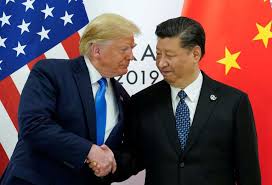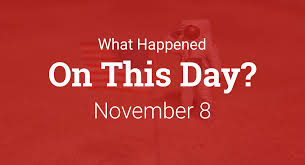Indian experts hail breakthrough in bid to save huge native bird
Catagory:News
Author:
Posted Date:11/08/2024
Posted By:utopia online
Last month brought good news for the great Indian bustard, a critically endangered bird found mainly in India.
Wildlife officials in the western state of Rajasthan have performed the first successful hatching of a chick through artificial insemination.
A lone adult male in one of two breeding centres in Jaisalmer city was trained to produce sperm without mating, which was then used to impregnate an adult female at the second centre some 200km (124 miles) away.
Officials said the development was important as it has opened up the possibility of creating a sperm bank.
Over the years, habitat loss, poaching and collisions with overhead power lines have effected great Indian bustards. Their numbers have fallen from more than 1,000 in the 1960s to around 150 at present.
Most of them are found in Jaisalmer and hence, conservation activists say that the bird's habitat in the city should be protected. But this land is also prime real estate for renewable energy firms, presenting authorities with a unique conservation challenge.The great Indian bustard may not be as well known as the peacock (India's national bird) but it's just as impressive, says Sumit Dookia, a conservation ecologist who has been studying the bird for close to a decade. The massive bird, which weighs between 15kg and 18kg, is one of the biggest flying birds in India.
It once had a prolific presence in the country and was found in at least 11 states, but today, its population is confined to Rajasthan, while a handful might be spotted in the southern state of Karnataka and the western state of Gujarat.
The shy bird plays an important role in the food chain by preying on rodents, snakes and other pests and is also the state bird of Rajasthan, where it is called 'Godawan' by locals.
But some of the bird's unique evolutionary traits are clashing with human interventions, making it vulnerable to extinction.
For one, the great Indian bustard has good peripheral vision but poor frontal vision, making it difficult for them to spot power lines until they fly too close to them. Their large size makes it difficult for them to quickly change their flight path and they end up colliding with the cables and dying.
"Their vision could have developed like this as the bird spends a large amount of time on land," says Mr Dookia. It also lays its eggs on the ground, without a nest or any other form of protection except for the watchful eye of the mother and this might have caused it to develop good side vision, he adds.
The great Indian bustard also has unique breeding habits. The bird lays just one egg at a time and spends the next two years caring for its offspring.
"Since it reaches maturity at around four years of age and lives for 12-15 years, it lays just about four-five eggs in its lifetime and many of these eggs are destroyed by predators," Mr Dookia says.Conservationists say that over the past few years, the great Indian bustard's habitat in Jaisalmer has been overrun by solar and wind energy farms, leading to an increase in flying accidents.
"The increased human presence has also created more filth, attracting stray dogs who kill the birds or destroy their eggs," Mr Dookia says.
To boost the bird's population, the government of Rajasthan collaborated with the federal government and the Wildlife Institute of India to launch a conservation breeding centre at Sam city in 2018. Another breeding centre was set up at Ramdevra village in 2022, says Ashish Vyas, a top forest official in Jaisalmer.
As a first step, researchers collected eggs found in the wild and hatched them in incubation centres. "Currently, there are 45 birds in both the centres,14 of which are captive-bred chicks (including the one born through artificial insemination)," he adds.
The plan is to further boost the bird's population and then eventually release them into the wild. But conservationists say that this is easier said than done.This is because the birds born in these breeding centres have imprinted on human researchers (in other words, they have formed close bonds with their human caretakers) and have lost about 60-70% of their ability to survive in the wild, says Mr Dookia.
"Human imprinting is necessary for feeding and handling the birds but it also makes them lose their natural instincts. It will be extremely challenging to re-wild them, especially if there's no habitat left for the birds to be released into," he adds.
The loss of habitat has also resulted in another problem: researchers have noticed that the birds, which used to migrate across states, have almost completely stopped doing so. Even in Jaisalmer, where the birds are found in two pockets - Pokhran in the eastern part of the city and the Desert National Park in the west - there's hardly any cross-migration, says Mr Dookia.
It's likely that the birds have stopped migrating over large distances in response to flying accidents, he adds. This increases the risk of inbreeding, which could result in birth defects.
"Thus, the only solution to conserve the great Indian bustard is to preserve its natural habitat," he says.
But a Supreme Court judgement from April has made conservationists uneasy.
The court overturned an earlier interim order, which had instructed Rajasthan and Gujarat to prioritise moving power cables underground in great Indian bustard habitats. The order had created a furore among renewable energy firms, who said that this would cost them billions of rupees and virtually kill their business.In its latest judgment, the court observed that people had the right to be free from the harmful effects of climate change and that shifting large sections of power cables underground may not be feasible for firms from a monetary and technical standpoint.
It also directed that a committee be set up to look into the feasibility of moving power lines and the efficacy of bird diverters - devices that have reflectors and are attached to power cables to alert birds about their presence.
While corporates have hailed the top court's judgment, conservationists and some legal experts say that it's problematic as it pits one good cause against another.
"The judgment brings into focus a flawed understanding of the interplay between climate change, biodiversity and development issues," ecologist Debadityo Sinha wrote in a column.
He noted that many highly-populated cities in India have underground power lines and that other states have taken such a step to protect other bird species in the past. He also pointed out that although moving power cables underground is expensive, it's likely to amount to a fraction of a firm's total earnings.
Mr Dookia says that one of the reasons renewable energy companies are flocking to Rajasthan is because of the low cost of land.
"There's also not much research on how these renewable energy farms will impact the state's climate and ecology in the long run," he says.
"So it's not just the bird's future that hangs in the balance, it's also man's."


.jpg)














 👁 :
👁 :
 👁 :
👁 :
 👁 :
👁 :
 👁 :
👁 :
 👁 :1
👁 :1
 👁 :1
👁 :1